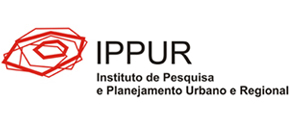Resumo em Inglês
Ademir Antonio CazellaDoutor em Ordenamento Territorial junto ao Centre d'Etudes Supérieures d'Aménagement -Tours/França, Professor titular da Universidade Federal de Santa Catarina e do Programa de Pós-Graduação em AgroecossistemasAdinor José CapellessoDoutor em Agroecossistemas, Professor no IFSC Câmpus São Miguel do OesteSergio SchneiderDoutor em Sociologia (UFRGS/Université Paris X), Professor Titular dos Programas dos Pós-Graduaç-oes em Desenvolvimento Rural e de Sociologia da UFRGS. Atual Vice Presidente da IRSA (International Rural Sociology Association), e-mail: schneide@ufrgThe non-take up approach to public policies: the case of rural credit for family farming
This article discusses the theoretical focus of “non-take up” to analyze public policies and the main reasons that an important portion of family famers do not access Brazil’s National Program for Strengthening Family Farming (Pronaf). Based on a bibliographic review, data about access to this rural credit program were analyzed, found in academic studies about the issue. The rate of non-take up to Pronaf was 64% in 2006, the year with the highest number of beneficiaries. This high rate is due to insufficient knowledge of the norms among farmers and credit operators, operational problems in financial agencies, social diversity of family farming, limitations of guarantees, lack of technical assistance, lack of interest by elderly farmers and reservations about difficulties that could be caused by lack of payment. Therefore, the non-take up of Pronaf is not due only to the inefficiency of public rural extension and financial services, as proven by cases of non-take up by choice.
Resumo em Português - Texto
Download PDF
Voltar



